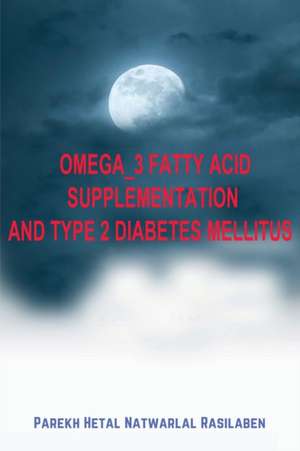Omega_3 Fatty Acid Supplementation and Type 2 Diabetes Mellitus
Autor Parekh Hetal Natwarlal Rasilabenen Limba Engleză Paperback – 8 feb 2023
Preț: 184.65 lei
Preț vechi: 194.38 lei
-5% Nou
Puncte Express: 277
Preț estimativ în valută:
35.34€ • 36.83$ • 29.42£
35.34€ • 36.83$ • 29.42£
Carte indisponibilă temporar
Doresc să fiu notificat când acest titlu va fi disponibil:
Se trimite...
Preluare comenzi: 021 569.72.76
Specificații
ISBN-13: 9788489353480
ISBN-10: 8489353484
Pagini: 252
Dimensiuni: 152 x 229 x 14 mm
Greutate: 0.37 kg
Editura: Thomas Nelson
ISBN-10: 8489353484
Pagini: 252
Dimensiuni: 152 x 229 x 14 mm
Greutate: 0.37 kg
Editura: Thomas Nelson
